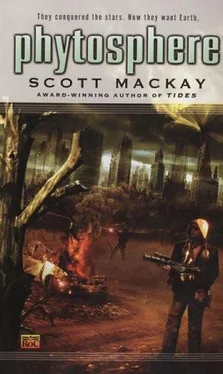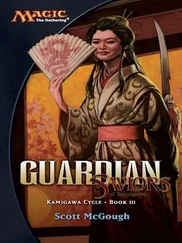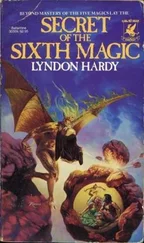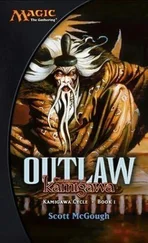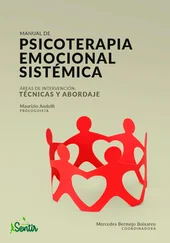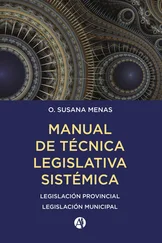“Neil, I’m sorry about Louise. This fellow…” She glanced inquisitively at the airman. “Fernandes, is it?”
“Yes, ma’am.”
“Fernandes told me.”
Neil raised his hands—no need to make any fuss. “We’re all right, Glenda. We’re just glad you made it here okay. We were starting to wonder.”
And that smile. Something wasn’t right about that smile.
The cousins got to know each other again. They had something to eat—military-issue stew, just add water—and her nieces came and clung to her off and on through the next several hours, especially Morgan, who mistakenly called her mommy a number of times.
She got to know the two other airmen: Captain Leonard Aft, who was nominally in charge, and Lieutenant Yuri Rostov, who was always wearing a pair of headphones and seemed to be the technical man; he had a constantly abstracted look in his eyes.
They had a rest. Hanna got her medicine. Her coughing got better and she breathed, for the first time in several days, without a wheeze.
Later on, Glenda stood guard duty with Neil in his study on the second floor. He still had that odd smile on his face, the squeeze of the curve so tight that his lips were white. Light-gathering goggles sat hinged in the up position above his eyes on a strap, and he kept scanning the grounds out front, his face lit by the dim glow of the communications apparatus on the floor next to him. He had lost weight. Not that he was gaunt, but his customary paunch was gone, his clothes were too baggy for his frame, and the usual fullness around his jaw had melted away like wax around a candle.
Now that his face was thin, Glenda couldn’t help seeing the resemblance to Gerry: the way his brow crowned around his eyes in a somewhat falconlike mold, the same generous nose, and a similar rounded protuberance to his chin. Her heart ached for Gerry.
And, as if Neil had read her mind, he said, “I’m sorry about Ger. I’m sorry he’s stuck up there.”
She looked away. Tears came to her eyes. “It’s a bit much.”
He reached out and put his hand on her arm. “Don’t worry, Glenda. I’ve got everything organized.
We’ve got listening posts reaching a mile in every direction. We’ve got infrared cameras the size of your thumb up in trees. We’re tracking each new landing and plotting it on a map. We’ve cataloged their movements and fed the results into a computer, and we’re coming to a real understanding of how they think, at least from a tactical and guerrilla standpoint. We’ve also made a fallback position in the cave.”
She dried her tears. “I forgot about the cave.”
“We’ve fortified the first chamber, and provisioned the second. We’ve got fresh water in there. Enough to last a month. Medicine, too. Not to mention food. We go out on patrol regularly. We search the area.
And we spray the house every day for bugs. Unfortunately, before we started spraying, the Tarsalans sent in bugs and found out we had food. But don’t worry about the Tarsalans. They haven’t mounted a strike in the last three days. We think they’re starting to tire. As for the cave, everything’s buried under rocks so they don’t know it’s there. And we go up there to spray, too.”
And still that smile, the lid on something that was simmering deep inside her brother-in-law.
She glanced out the front window. “I’m sorry about Louise.”
He didn’t say anything. She turned back to him. In the light of the communications apparatus, she saw that his face had turned red. She moved closer and put her arm around him.
“I’m okay…. I’m okay,” he said.
“No… you’re not.”
He took a deep breath. The smile disappeared from his face. “Maybe not.” And then he bowed his head, as if in shame, and closed his eyes. “I failed her, Glenda.”
“You didn’t fail her.”
“And I failed the kids.”
“No, you didn’t.”
“I finally realize what a big fool I’ve been all these years.”
“You’re not a fool. For God’s sake, Neil.”
After that, they lapsed into silence for a long time. She must have dozed. And Neil must have thought she was asleep—even when she opened her eyes around a quarter to eleven.
His shoulders heaved and he wept silently. The pain bristled off him like heat from a furnace. Her throat tightened with anguish and her own eyes filled with tears. God. What were they going to do? Here was the end of time. And Neil, once the world’s hero, was nothing but a broken man who cried alone in the dark when he thought no one was watching.
Day now followed day. The sad, dark month of October crept slowly toward its close. Glenda occasionally tried to reach Gerry on her fone, but with the shroud constantly thickening, her signal never got through, and she didn’t even get the message from AT&T Interlunar about service being down anymore.
At the start of their second week there, Neil got a call on his special phone from Assistant Secretary of Defense Fonblanque. When he was done speaking to her, he told Glenda about it.
“The United States Navy recovered a communications drop from the Moon three days ago south of the Solomon Islands. The Moon is telling us they’ve embarked on their own mission to destroy the phytosphere.” And then, unexpectedly, after talking in official mode, Neil got choked up. “Gerry might have had something after all. With his stress band and flagella.” He looked at the airmen, then at his daughters, then at Glenda and her family. “It seems they’ve conducted experiments that prove the phytosphere is… sensitive to gravitational pressure… and that the Moon, all this time, has been creating a tidal flux in the phytosphere—Gerry’s stress band. Gerry says if he increases the gravitational pull of the Moon against the phytosphere by a factor of fifteen percent for a period of five days, the flagella will be overwhelmed and the phytosphere will break apart.” Neil spelled it out in one blunt summation: “He’s going to slam the asteroid Gaspra into the Moon, move the Moon closer to the Earth, and use the resulting stronger gravity to shake the phytosphere apart.” He then sketched in the technicalities.
When he was done, Glenda stared at her brother-in-law with unmitigated alarm. Colliding emotions rushed through her body. Her throat felt ticklish, tears sprang to her eyes, and her head swam. She stumbled backward and would have fallen if Rostov hadn’t caught her.
“And he’s going to be riding on this asteroid?”
“That’s what Fonblanque says. At the last minute they’re going to eject in a survival pod. The mission is already well under way.”
“What’s to stop the Moon from falling into the Earth?” asked Lenny.
“The Moon’s orbit has been widening for millions of years. It’s going to continue in that pattern. This will just be a momentary blip. Centrifugal forces will soon pull it back to its regular orbit.”
“Is he serious?” Glenda couldn’t seem to catch her breath.
“They’ve already gone. They’ve reached Gaspra. They’re rigging it with AviOrbit’s five biggest singularity drives.” Neil looked away. “I’ve always chastised him for taking wild risks… but even I couldn’t have imagined—”
“Is Daddy all right?” asked Hanna, her eyes like tombs after all the asthma, but showing some light for the first time in weeks.
Neil turned to Hanna. “ He’s all right.”
The reservation Glenda heard in Neil’s voice jabbed her like the point of a hypodermic needle. “And just what the hell’s that supposed to mean?”
Neil hesitated. “It seems some Tarsalans escaped to the Moon after the TMS became unviable. Before Nectaris mounted its mission, it neutralized those Tarsalans, and they’re now in detainment facilities on the Moon. This was to circumvent the possibility that the Tarsalans might sabotage the Gaspra mission.
Читать дальше
